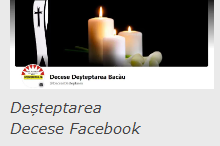National panic, emergency evacuations, and a wave of fear that swept across the country. All of Romania trembled in fear of the apocalyptic cyclone „Ashley,” which was said to destroy everything in its path. Thousands of people left their homes, authorities built protective levees, and TV stations broadcast severe warnings non-stop.
Amid this chaos, one man had the courage to raise a question: Lucian Sfîcă, an associate professor in the Department of Geography, teaching Meteorology and Climatology at Al. I. Cuza University of Iași, uncovered the truth behind the so-called cyclone. „I felt that something wasn’t right,” Sfîcă recalls, as he decided to closely investigate the claims about the cyclone that was supposedly about to strike Romania. „I constantly monitor forecast models and synoptic maps; it’s part of my daily routine and my job. There was simply no serious indication that Ashley was going to form, let alone hit Romania. The causes of the ongoing severe meteorological phenomena were scientifically different.”

Professor Sfîcă’s research revealed a shocking truth: „Ashley” was, in fact, a fabrication. „I did a simple Google search. It was obvious that if there was a real cyclone, it would be mentioned by international sources. Yet the only information about the cyclone was coming from Romania. It was a purely Romanian invention,” explains the professor, who quickly became a vocal critic of the media’s exaggerations.
The Romanian National Meteorological Administration (ANM) specialists confirmed that there was no imminent threat. However, the media frenzy and rumors continued to spread, fueling public panic. „Even though our meteorologists were clearly stating there would be no cyclone, the discussions wouldn’t stop. It was as if the media refused to accept reality,” Sfîcă adds.
Now, after the media storm has settled, questions remain: How should the public react to such alarmist news, and why did the situation escalate so much? „People need to understand that weather forecasting is not an exact science, but it does provide a reliable guide. Expecting absolute certainty is unrealistic,” emphasizes the professor. „It’s a challenge for everyone—to learn how to distinguish between facts and sensationalism.”
Sfîcă warns of a long-term danger: „If situations like this persist, we risk facing a serious perception problem. At some point, the weather will indeed cause significant issues, but no one will believe the warnings—just like the story of the boy who cried wolf.”
Lucian Sfîcă argues that weather forecasts must remain a fundamental reference in society, and when the ANM issues a warning, it should be taken seriously and followed by everyone.
Meteorological warnings are not just mere information; they are protective measures that can save lives and prevent natural disasters. The issue arises, however, when people develop unrealistic expectations of what meteorology can offer.
There is a widespread tendency to demand absolute certainty from meteorologists, which is simply not possible. Meteorology is a probabilistic science based on models and observations that can predict weather patterns but cannot guarantee infallible results.
The Iași professor believes that we need to eliminate the gap between the complexity of meteorological phenomena and how they are communicated in the media.
Often, the terminology used in weather reports is exaggerated, and the phenomena are presented in an alarmist way, creating a disconnect between scientific reality and public perception.



















